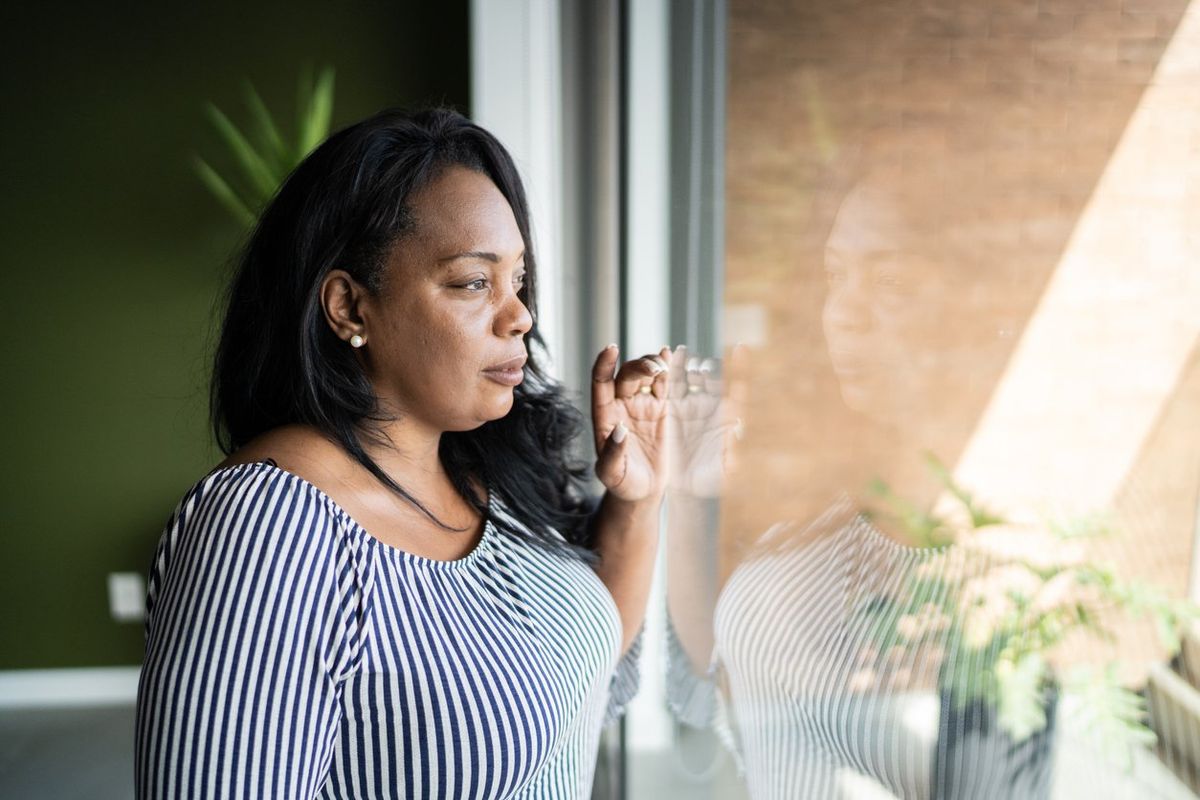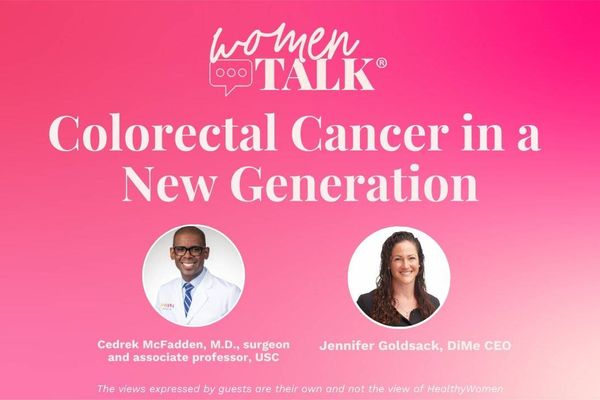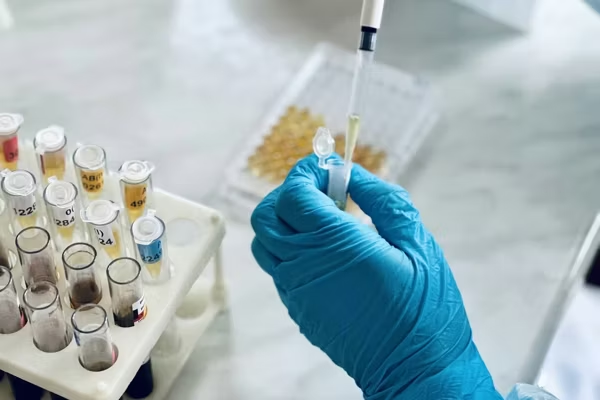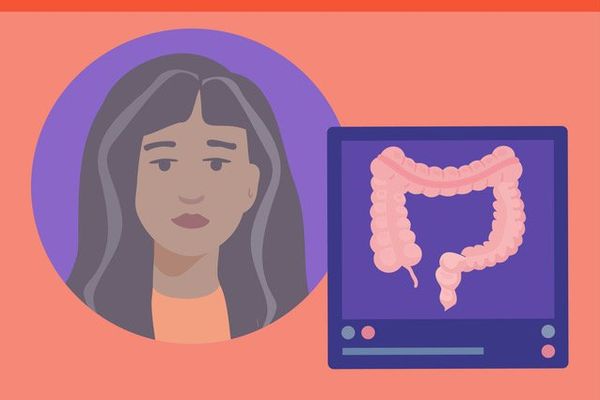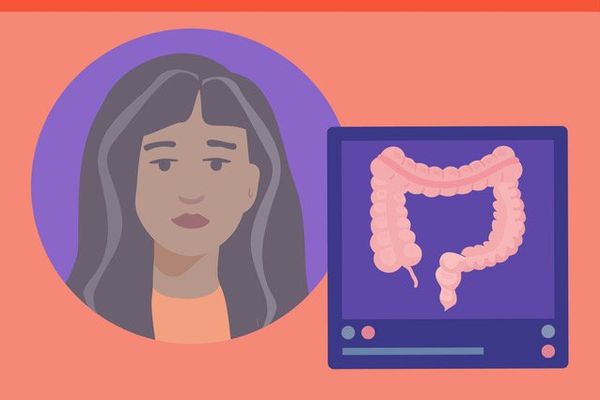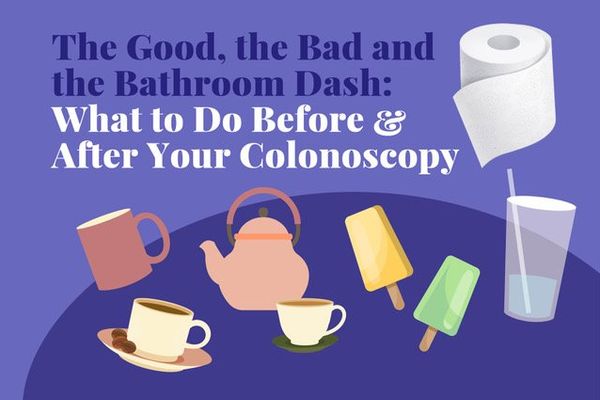Jennifer Jones, the first Black woman to become a member of the Radio City Rockettes, had always been the healthy one in her family.
On the eve of her 50th birthday, she was an avid runner and dancer, and had been a vegetarian for more than 25 years. She said she felt great when the big day arrived, but grew concerned when she began experiencing bloating, trapped gas and abdominal discomfort a few months later.
Jones told herself "these things happen” at her age. She also thought it might be a food allergy and decided to remove gluten from her diet. She wasn’t worried about cancer at all when she went to the doctor for her first colonoscopy, which, at the time, was recommended for people ages 50 and over.
After undergoing the procedure, she was stunned when the results came back. She had colorectal cancer, and her doctor said she had about five years left to live. Jones was stunned — she had no family history of colorectal cancer and no other known risk factors for the disease.
“I was embarrassed and ashamed when I found out I had stage 3 colorectal cancer,” Jones said. She kept her diagnosis from her friends and family for a few weeks. “At the time, both my children were in college, and I started thinking I’d never see their lives fully flourish.”
Who’s at risk for colon cancer?
Colon cancer, or colorectal cancer, is cancer of the large intestine or the rectum. It’s the third most common cancer in the U.S., and up to 1 in 26 women will receive a colorectal cancer diagnosis in their lifetimes.
Some racial and ethnic groups face a higher risk of developing colorectal cancer. A genetic mutation found mostly in people of Ashkenazi Jewish heritage, APC I1307K, is believed to contribute to higher rates of colorectal cancer in that population. A family history of colorectal cancer also can increase the risk of developing the disease.
But research suggests that most colorectal cancer cases are not genetic or hereditary. African Americans, who are 20% more likely to be diagnosed with colorectal cancer and 40% more likely to die of the disease than other groups, develop the cancer at younger ages and are diagnosed at a later stage, which lowers survival rates. These differences in diagnosis and survival rates have been linked to racial and socioeconomic health inequities, such as a lack of access to quality medical care as a result of finances or geography and a lack of trust in healthcare providers.
Jones faced inequities herself during her cancer journey. In between jobs and without health insurance, Jones took a position at a company that delayed her hiring by a month and gave her a lower salary than promised. She said she still took the job because she needed to see a doctor and had to support her family.
After her diagnosis, Jones said she wasn’t happy with the level of care she was getting from her doctor, who happened to be a white male, and decided to seek a new provider.
“I finally sat my family down and told them about my illness and decided I would go to Memorial Sloan Kettering,” Jones said. “My surgeon … and my oncologist … and an almost all-female driven team took me in as a person, not a number. That truly is when my treatment and road to battling cancer started.”
For decades, colorectal cancer was seen as an older person’s disease. But cases are rising among younger people, regardless of ethnic background. In 2020, about 12% of colorectal cancer cases in the U.S. were in people under age 50.
“It’s pushed a lot of the societies to change their guidelines to reduce the age for colorectal cancer screening from 50, which it had been forever, to 45,” said Ayanna Lewis, M.D., a gastroenterologist at Mount Sinai South Nassau in Merrick, New York, and a member of the Healthy Women Women’s Health Advisory Council. “Having done colonoscopies for eight years, I'm still shocked at how many young people in their 20s whom I scope for other reasons already have polyps.”
Jones was screened in 2018, the year the American Cancer Society lowered the recommended screening age for colorectal cancer from 50 to 45 for those not considered high risk. She wishes those guidelines had been in place when she turned 45 — her cancer might have been caught earlier. Because of her diagnosis, she knows her children will be screened by age 40, the age recommended for those with a family history of colorectal cancer.
Lewis said abnormal cells in a colon polyp can take seven to 10 years to turn into cancer. That means a polyp detected and removed at age 45 compared to age 50 gives patients a much better chance at long-term survival.
“It's important to know that colorectal cancer is treatable,” Lewis said. “Even if it's diagnosed later than we'd like, there are effective treatments.”
Reducing risk of colorectal cancer
In addition to starting screening at the appropriate age; maintaining a healthy weight; exercising; and avoiding red meats, processed meats and sugary foods are among the recommendations to help reduce the risk of colorectal cancer. Smoking and heavy alcohol use are also linked to higher rates of colorectal cancer, along with lower blood levels of vitamin D.
Lewis said that, as the American diet has changed over the last three to four decades to include more processed foods, rates of people who have excess weight and those living with obesity have climbed. More Americans are also developing diabetes along with overweight, and some studies have shown links between colorectal cancer/colorectal polyps and diabetes, excess weight and obesity. African Americans are more likely to have overweight or obesity, be diagnosed with diabetes and be deficient in vitamin D, all of which could contribute to higher colorectal cancer rates.
Healthcare providers also have an important role in reducing cancer diagnoses, Lewis said. Connecting with individuals through health fairs, churches and community organizations can encourage more people to see a provider for screening. Building relationships with existing patients can make them feel more comfortable discussing their symptoms and be more open to cancer screening.
“By taking that extra time to explain the process, even nonverbally, sometimes I not only help that patient who's in front of me, but they’ll encourage their friends and family members to get screened,” Lewis said. “They can say, ‘It was not scary. No one treated me like I was an object. No one stared at my butt. The prep was not as bad as everyone said.’”
Ready to graduate
Jones has been cancer-free since 2019. She hopes that streak continues through December 2023, which would mark five years since her diagnosis.
After overcoming her cancer, she’s living by the mantra “Don’t wait to live life — live your dreams out loud.” For her, that includes publishing a children’s book, a memoir and even a “Dancing Jenn” doll.
She’s also worked as an advocate with the Colorectal Cancer Alliance to help spread the word about the importance of cancer screening.
“There’s not enough conversation about [colon cancer] in our communities,” Jones said. “It’s a hard topic to talk about, but difficult conversations must happen. Learn your family's history and get screened at 45 or younger if your family has a history of colorectal cancer. If you don’t have your health, you don’t have much.”
This resource was created with support from Merck.
- The Importance of Early Detection for Colorectal Cancer ›
- Colorectal Cancer: What Every Woman Needs to Know ›
- Signs of Colon Cancer in Women ›
- Colorectal Cancer 101 ›
- The Connection Between Young Adults and Colon Cancer - HealthyWomen ›
- La conexión entre adultos jóvenes y el cáncer de colon - HealthyWomen ›
- WomenTalk: Colorectal Cancer in a New Generation - HealthyWomen ›

